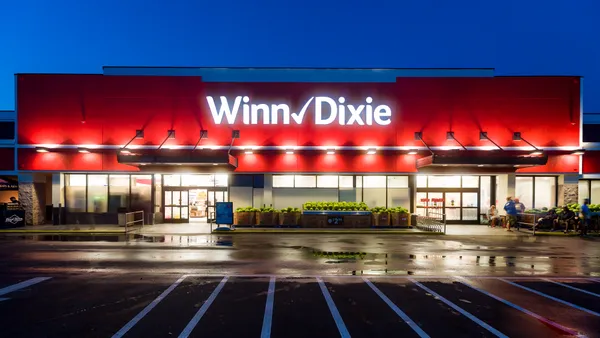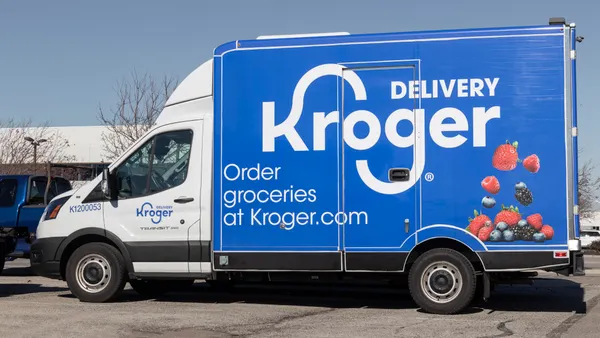Dive Brief:
- Earth Fare announced Monday it plans to close all of its stores and corporate office as it seeks buyers for its assets. The chain said it has notified all employees of the impending closures and said it will begin inventory liquidation at all of its about 50 locations.
- In a news release, the company said it was unable to refinance its debt due to “continued challenges in the retail industry” and despite numerous strategic initiatives undertaken in recent years. Earth Fare is majority owned by private equity firm Oak Hill Capital Partners.
- "Earth Fare is not in a financial position to continue to operate on a go-forward basis," the company announced. "As such, we have made the difficult, but necessary decision to commence inventory liquidation sales while we continue to engage in a process to find potential suitors for our stores."
Dive Insight:
Earth Fare expanded rapidly under private equity ownership, growing from 13 locations in 2006, when it was purchased by Monitor Clipper Partners, to roughly 50 locations today. In 2012, Oak Hill Capital Partners purchased an 80% stake in the chain, valued at $300 million.
That quick expansion sought to capitalize on growing demand for the sort of locally grown, healthy products Earth Fare sold. To differentiate from the competition, the grocer in recent years focused on the clean-eating trend, promoting its list of banned ingredients and calling out competitors for stocking too many processed foods. It even claimed shoppers would live longer by shopping at its stores.
On the operations side, Earth Fare was remodeling stores in key markets and had implemented efficiency measures like artificial intelligence optimized store promotions.
As recently as last year, Earth Fare said it planned to double its store count, with reports outlining a continued push into Florida. But Earth Fare had to contend with a rising crop of specialty competitors that were targeting the same consumers, including Whole Foods, Sprouts Farmers Market, The Fresh Market and the recently bankrupt Lucky’s Market.
Earth Fare was also challenged by conventional chains like Kroger, Publix and Ahold Delhaize that have increased their specialty assortment, including natural and organic private labels. Without a pricing edge over its competition, Earth Fare has struggled to prove its value to consumers.
The announcement brings Earth Fare's decades-long saga to a close. Founded in 1975 as Dinner for the Earth, the company was at the leading edge of the natural foods movement. In 1994, it adopted the name Earth Fare and gradually expanded to a few East Coast states before its growth accelerated. In December, Earth Fare closed down four locations including its three Indianapolis stores — a worrying sign for the company.
Earth Fare becomes the third grocer this year to announce a sweeping sale of its assets. Fairway Market plans to sell its 14 stores, including its popular New York City locations, while Lucky’s Market has begun fielding buyers for 32 of its 39 stores after filing for bankruptcy protection. Lucky’s founders Bo and Trish Sharon said last week they plan to acquire the remaining seven locations.










